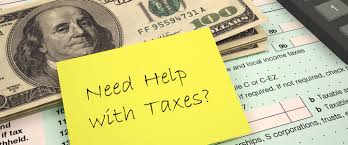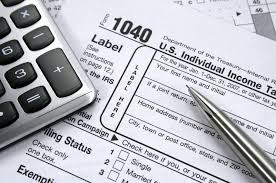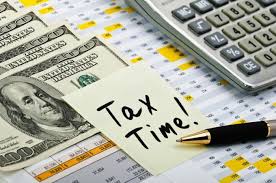How much money do you make before you file taxes?
How Much Do You Have to Make to File Taxes in 2020? Not sure if you have to file a tax return this year? Here’s everything you need to know. Tax season is upon us, with the deadline only a couple of months away. And that deadline will be here before you know it.
Getting all of your tax information prepared as early as possible (meaning start now if you haven’t) is important. But depending on the money you make and how you plan on filing your taxes, there’s another important thing to figure out: do you even make enough money to require filing taxes?
It can be a worthwhile question if you’re not making that much money. If you’re below a certain threshold of annual income, you may not need to file them. However, often even in these cases there are other circumstances that will necessitate a tax return, such as the health insurance you have, whether you’re self-employed or whether you’re eligible for an earned income tax credit.
If these don’t apply to you, though, do you need to file taxes?
How Much Do You Have to Make to File Taxes?
Income-based tax requirements will be dependent on how you plan on filing a tax return. Inevitably whether you’ll need to file a tax return who have to do with whether you’re income can even make it past the first tax bracket and how much more if so, but those tax brackets vary depending on how you file.
How Much You Have to Make Based on Filing Status
So are you planning on filing single (no spouse or dependent), married filing jointly, married filing separately or head of household? Let’s break them all down.
- Single: If you are single and under the age of 65, the minimum amount of annual gross income you can make that requires filing a tax return is $12,200. If you’re 65 or older and plan on filing single, that minimum goes up to $13,850.
- Married and filing jointly: How much you have to make if you’re married and filing jointly will depend on the age of both you and your spouse, generally coming out to double what someone filing single would require. If both spouses are under 65, you need to make at least $24,400. If both spouses are 65 or older, you will have to make a minimum of $27,000. If just one of you is 65 or older, split the difference; you need to make $25,700.
- Qualifying Widower: If you are a qualifying widower (meaning your spouse died in this tax year) with a dependent child, you are also able to file as married filing jointly, and the age disparity still applies: at least $24,400 if you’re under 65, at least $25,700 if you’re 65 or older.
- Married and filing separately: Those who are married and filing separately, interestingly, only require a gross income of $5 to have to file a tax return.
- Head of household: If you qualify for head of household status and look to file as such, you have to file a tax return if you make $18,350 or more under the age of 65. If you are 65 or older, that number is $20,000 in gross income.

How Much Can a Small Business Make Before Paying Taxes?
If you operate a small business, you must pay taxes on the income, regardless of the profit and loss. The tax return you must file depends on how your business is structured. For example, if you have a sole proprietorship you’ll file the schedule C with your personal tax return.
If you’re a freelancer, you must also pay self-employment taxes for income more than $400. These taxes cover Medicare and social security taxes.
Sole proprietors must file IRS Form 1040, Schedule C and Schedule SE if your net income is greater than $400. If you have an employee, you will need to withhold federal and state income taxes and Social Security and Medicare taxes for each employee.
How Can I Reduce My Taxable Income?
One way to reduce taxable income is by topping up your retirement savings with traditional (not Roth) IRAs and 401(k)s, up to the maximum allowable contribution.
Contributions to Health Savings Accounts (HSA) and Flexible Spending Accounts (FSA) are another way to shrink your taxable income.
You could potentially earn thousands of dollars before paying taxes. However, even when your income falls below the cut-off level and you do not have to pay taxes, you need to file to taxes to get a refund check.

Do I Have to File Taxes? — Additional Considerations
Although your income may be below the minimum income to file taxes as shown above, you may not have to file taxes, but there may be times when you want to file a return.
- Refund of withheld income taxes – If you received pay during the year and had income tax withheld, you may want to file a return to obtain a refund of the amount withheld.
- Earned income tax credit – This benefit is a refundable credit, meaning even if you do not owe taxes, you can still get a refund. Depending on your income and the number of children you have, lower-income workers may be eligible for an EITC of $510 to $6,318. Note: You do not need to have children to be eligible.
If you determine that you do need and want to file your taxes, keep in mind that H&R Block offers free and easy online tax filing options.

Why is the income threshold so high for some?
Taxpayers in the U.S. are required to pay taxes on income minus deductions.
You could itemize and claim a deduction for specific things, such as mortgage interest paid. If you itemize, you always have to file a return to tell the IRS what you’re deducting. But there’s also a standard deduction you could choose to claim instead.
The income you could earn without having to file equals the standard deduction amount. In 2019, for example, the standard deduction was $12,200 for singles. So, if you had income below this threshold and claimed the standard deduction, your taxable income would go below $0 so you usually wouldn’t have to file a return.
And since seniors have a higher standard deduction, they can earn more income without having to file.
When should you file a tax return anyway?
There are certain situations when you must file a tax return even if you don’t meet the income thresholds. These include the following:
- You owe special taxes such as household employment taxes or alternative minimum tax.
- You or a spouse you’re filing jointly with received distributions from a health savings account.
- You had $400 or more of net earnings from self-employment.
- You received wages of $108.28 or more from a church exempt from FICA taxes.
- You received Obamacare subsidies to buy health insurance.
If none of these situations applies and you aren’t required to file a return, you may want to anyway. You should if you had taxes withheld from your paycheck and want to get your refund. You should also file if you think you may be eligible for refundable tax credits such as the Child Tax Credit. A refundable tax credit is one you can receive even if you paid little or no taxes. For example, up to $1,400 of the child tax credit is refundable. If you owe $0 in taxes and are eligible for it, you could file a tax return to get a $1,400 refund.
What if I only receive Social Security benefits?
In most cases, if you only receive Social Security benefits you wouldn’t have any taxable income and wouldn’t need to file a tax return.
One catch with Social Security benefits is if you are married but file a separate tax return from your spouse who you lived with during the year. Then you will always have to include at least some of your Social Security benefits in your taxable income to see if it is greater than your standard deduction.
When Social Security benefits may be taxable
When determining whether you need to file a return and you receive Social Security benefits, you need to consider tax-exempt income because it can cause your benefits to be taxable even if you don’t have any other taxable income.
Here’s an example of where you may need to file, even with tax-exempt income:
- You are under age 65 and receive $30,000 in Social Security benefits, but also receive another $31,000 in tax-exempt interest. $14,700 of your Social Security benefits will be considered taxable income.
- This is greater than your standard deduction ($12,200 for a single taxpayer in 2019) and you would need to file a tax return.
To figure out if your Social Security benefits are taxable:
- Add one-half of the Social Security income to all other income, including tax-exempt interest.
- Then compare that amount to the base amount for your filing status.
- If the total is more than the base amount, some of your benefits may be taxable.